Martha A. Cheves's Blog, page 5
October 26, 2017
Things That Shouldn't go into the Dishwasher - part 16
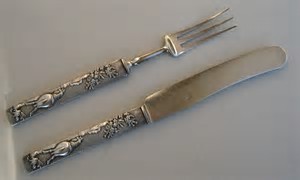
Sterling Silver Knives
Sterling silver flatware goes through a dishwasher just as well as stainless steel, with one exception: Many sterling silver knives have a hollow handle and the heat of the dishwasher can cause the glue that holds the blade to the handle to melt and separate. This happens whether the blade is sterling or stainless steel. Hand wash instead.
Comment: Did not know this but I've always washed silver by hand and dried it immediately.
Published on October 26, 2017 13:01
October 25, 2017
Things That Shouldn't go into the Dishwasher - part 15
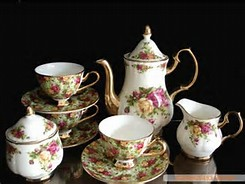
Vintage China, Delicate Crystal and Repaired Items
For any glass or china heirlooms, skip the dishwasher and carefully hand wash. This is especially important for any item that has been repaired. The high heat and harsh detergents will cause the adhesives used to weaken and you may lose any small pieces.
Delicate crystal should be hand washed to prevent chipping. If you decide to use the dishwasher, use the top rack and place the glasses between the tines, not over them, to help avoid breakage. Remember, some lead crystal will become cloudy.
Comments: Not guilty!
Published on October 25, 2017 12:48
October 24, 2017
Things That Shouldn't go into the Dishwasher - part 14

Gold Flatware and Metalic Trimmed China
While sterling silver flatware travels through a dishwasher well, gold-colored flatware will dull and discolor in the dishwasher due to the harsh detergent.
Porcelain and fine china are dishwasher safe unless they have metallic trim or images. The harsh detergent and the strong water action of the jets can cause the metallic work to flake away. With any delicate china, take care when loading so that pieces don't knock together and cause chipping.
Comment: This is one that has to be washed with a soft touch no matter how you wash it.
Published on October 24, 2017 07:58
October 22, 2017
Things That Shouldn't go into the Dishwasher - part 13

Containers With Paper Labels
Along with your deli containers, you may also save glass food jars for storage. There's no problem with placing the jars in the dishwasher, IF you remove the paper labels first. If you don't, the paper and adhesive may come off and clog the dishwasher drain and food disposal system.
Extra tip: One of the best label/adhesive removers on the market is Un-Du with a built-in scraper.
Comment: Never heard of the Un-Du but sounds like something that might be worth checking into. I have washed containers before but have had enough brain to soak the paper part in hot water to remove the label before going into the dishwasher.
Published on October 22, 2017 13:29
October 20, 2017
Things That Shouldn't go into the Dishwasher - part 12
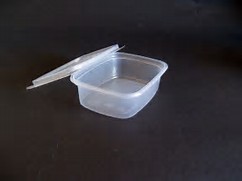
Thin Plastic Containers
If you save every butter tub and deli container to use for storage, be prepared to loose a few if you place them in the dishwasher. The high heat can cause them to melt or warp.
When you place them in the dishwasher, use the top rack only and skip the high heat drying cycle. Remove from the dishwasher to air dry.
Comment: Learned my lesson the hard way with this one. A lid got hot, crinkled up and ended up on the heating element of the dishwasher. Never again.
Published on October 20, 2017 10:30
October 19, 2017
Things That Shouldn't go into the Dishwasher - part 11
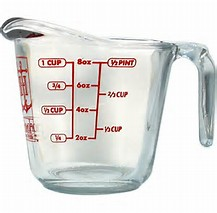
Printed or Hand Painted Glassware
The techniques for commercial printing on glassware have improved but they are not always infallible in the dishwasher. That harsh detergent and the force of the water spray can remove the paint in just one or two washes.
And what good is a glass measuring cup with no lines?
Comment: I have noticed over the years that the markings eventually came off my measuring cup.
Published on October 19, 2017 12:51
October 18, 2017
Things That Shouldn't go into the Dishwasher - part 10
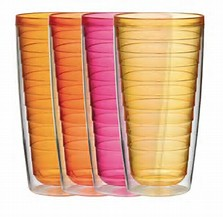
Insulated Glasses, Tumblers and Thermal Containers
Plastic and metal insulated cups, tumblers and containers are great for keeping hot things hot and cold things cold. Most are constructed with two layers of material with an airspace between the two. It's that airspace that provides the insulation.
While some containers are labeled as dishwasher safe, many are not. It is best to hand wash both plastic and metal insulated containers. If you decide to place one in the dishwasher, opt for the top rack and skip the high heat of the drying cycle.
Comments: I'm waiting on the list of what I CAN put in my dishwasher!
Published on October 18, 2017 14:27
October 17, 2017
Things That Shouldn't go into the Dishwasher - part 9
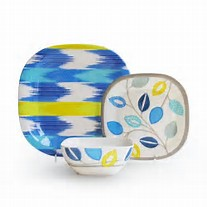
Acrylic or Melamine Dishes
Lightweight, non-breakable acrylic or melamine dishware is very popular due to the bright colors and patterns. Unfortunately, the high water and drying temperatures and harsh dishwasher detergents can ruin the dishes. After several washings, especially for cheaper sets, there can be hairline cracks and loss of color and design.
If you love them and want them to last, hand wash.
Comment: I've wasted a few of these dishes in the past. Guess I now know why.
Published on October 17, 2017 15:13
October 16, 2017
Things That Shouldn't go into the Dishwasher - part 8
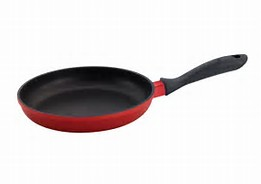
Nonstick Pans
While many nonstick pans are labeled as dishwasher safe, the harsh detergents and excessively high drying temperatures can take a toll on the nonstick coating. If you choose to wash your pans in the dishwasher, skip the drying cycle and allow them to air dry.
At the first sign of damage to the surface, it's time for a new pan. When the nonstick surface is scratched, chipped or flaking, it can release dangerous toxins into the food.
Comment: Guilty again. Guess this is why I've gone through so many non-stick pots and pans.
Published on October 16, 2017 13:36
October 14, 2017
Things That Shouldn't go into the Dishwasher - part 7
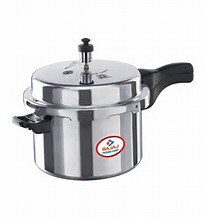
Pressure Cooker Lids
While a pressure cooker pot may go through a dishwasher cycle just fine, you should never put the pressure cooker lid in the dishwasher.
The lid contains the valves that control how well the cooker works. The action of a dishwasher can force small particles of food into the valves and vents and cause the cooker to malfunction (explode). The harsh chemicals can also damage the rubber or silicone seals of the lid.
Comment: Not guilty. I'm actually afraid of pressure cookers.
Published on October 14, 2017 12:31



